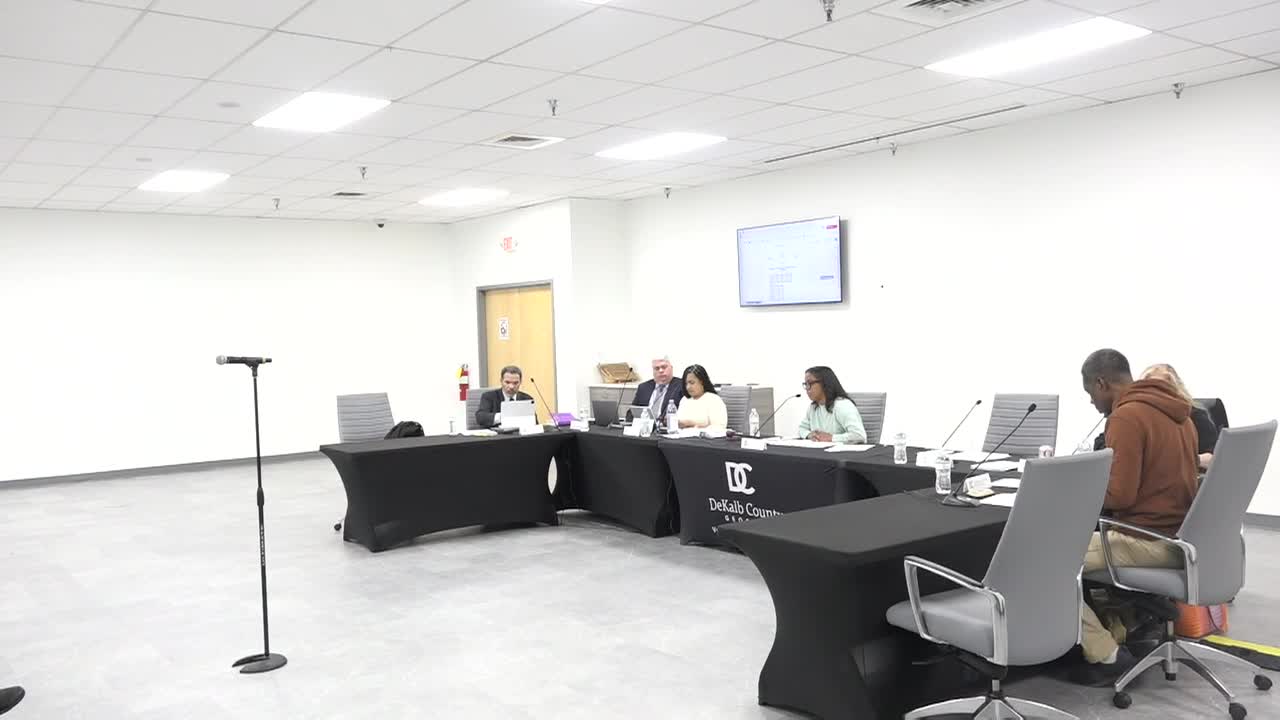DeKalb board considers wide polling-place consolidations, seeks public input and ADA proof
Get AI-powered insights, summaries, and transcripts
Subscribe
Summary
DeKalb County's Board of Registration and Elections on Jan. 9 reviewed a proposal to consolidate polling places at underused or inaccessible sites and to redraw a handful of precinct boundaries.
DeKalb County's Board of Registration and Elections on Jan. 9 reviewed a proposal to consolidate polling places at underused or inaccessible sites and to redraw a handful of precinct boundaries.
Director Smith told the board the effort is intended to "optimize polling locations" and stressed that "equity and accessibility are at the heart of this initiative," saying staff seeks to reassign affected voters to nearby locations "that can accommodate them seamlessly without adding significant travel burdens." The director also provided county registration totals: 592,783 registered voters, 502,606 active and 9,177 inactive as of Jan. 9.
The proposal in the packet includes three categories of changes: a table of 19 precincts proposed to be combined at the polling-place level, a table of four re-combinations of already-combined precincts to bring voters closer to polling sites, and six actual precinct-boundary changes that would require board approval and subsequent action by the Board of Commissioners. Staff'member Jay Catherwood described the packet maps and said the changes respond to underutilized or facility-constrained sites and recent municipal annexations.
Several members of the public and board raised accessibility concerns. Janet Grant, identified in the meeting as an area poll manager, urged transparency and ground-level input and recommended leveraging experienced area managers during planning. "I strongly support the consolidation of Indian Creek and Clarkston Community Center," Grant said, and noted the combined precinct could encompass about 4,600 registered voters. Beth Ann Froman and Liz Troop also asked for clear, detailed materials showing new locations, voter counts and annexation impacts so residents can provide meaningful feedback.
Board members pressed staff on ADA compliance at elementary schools that appear in the packet. One board member said many historic ADA problems have involved elementary-school layouts with voting held in gyms or annex buildings and asked staff to "convince me by the time we vote next month that we don't have ADA issues with any of these elementary schools." Staff replied that some moves would redirect voters from elementary schools to alternative buildings inside precincts (for example, Wesley Chapel Library rather than an elementary gym) and that site assessments informed the recommendations.
On outreach, staff said a communications plan would include direct mail to impacted voters, legal notices, signage at former polling places on election day, social media and press releases, targeted emails, and deployment of a county mobile outreach unit recently approved by the Board of Commissioners. "There is a minimum of 90 days" required before implementation of polling-place changes, staff said, and the communications schedule will be built from that statutory window.
Board members requested a clearer table listing the new polling location addresses and all precincts served by each site, additional detail on site assessments and ADA findings, and at least one community meeting with poll managers and affected residents before the board votes. Staff committed to posting detailed maps and the communications plan online and to holding community outreach prior to a final decision.
The board did not vote on the proposal Jan. 9; members said they intend to take action next month after receiving additional facility assessments and public feedback.
DeKalb County officials said the changes aim to reduce the number of separate polling sites (the county currently draws 191 precincts) while maintaining convenient access and improving the consistency of facilities used for elections.
